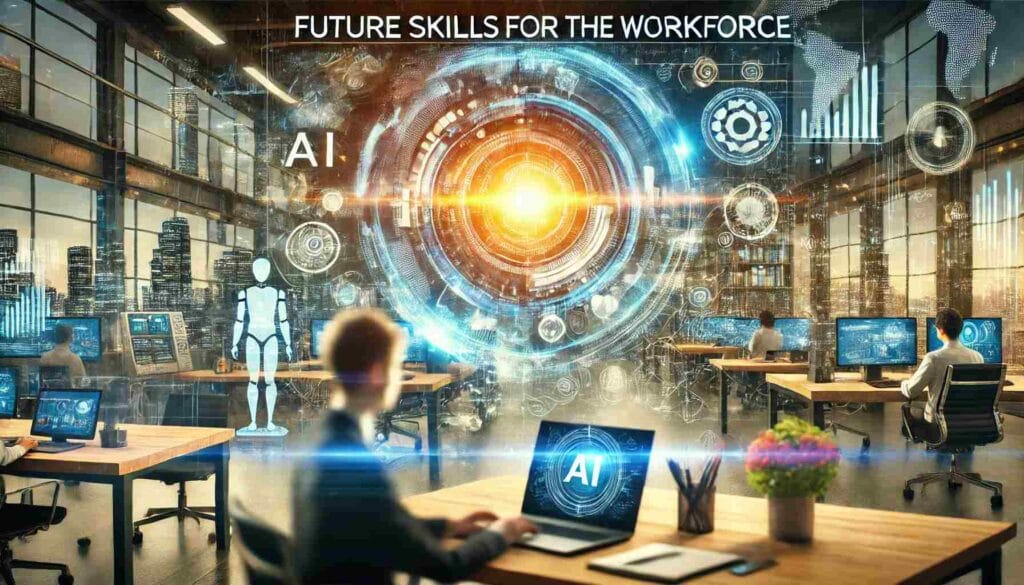Skills for the Future: Preparing for a Changing World

The world is changing rapidly, and with that change comes the need to adapt and develop new skills. The skills required for the future are not limited to technical knowledge; they encompass creativity, adaptability, and emotional intelligence. As technology continues to evolve, particularly with the rise of artificial intelligence, automation, and quantum computing, individuals need to focus on developing the competencies that will make them thrive in the workforce of tomorrow.
1. Digital Literacy and Tech Skills
The digital age is here to stay, and digital literacy is no longer optional. Understanding how technology works, from basic software tools to advanced technologies like artificial intelligence (AI), blockchain, and quantum computing, is critical. Tech skills such as coding, data analysis, and cybersecurity will continue to be in high demand. As industries embrace automation, individuals who can navigate and control these technologies will have a distinct advantage.
In addition, proficiency in AI and machine learning will become increasingly essential. AI is transforming industries like healthcare, finance, and entertainment, and the ability to work with these technologies will be a major asset.
2. Creativity and Innovation
While technology continues to evolve, one thing that machines cannot replicate easily is human creativity. The future will demand people who can think outside the box, innovate, and come up with solutions to complex problems. Creative skills in areas like design thinking, storytelling, and product development will be crucial. The ability to come up with fresh ideas, challenge existing norms, and create unique solutions will set individuals apart in the competitive job market.
3. Emotional Intelligence (EQ)
As automation takes over more routine and technical tasks, human skills, especially emotional intelligence, will become more important. Emotional intelligence encompasses self-awareness, empathy, social skills, and the ability to manage emotions effectively. In a world where human interaction and collaboration remain essential, being able to understand and connect with others on an emotional level will be highly valuable.
Empathy, in particular, will be a sought-after trait in leadership roles. People who can build strong relationships, inspire teams, and navigate complex social dynamics will be well-equipped for future opportunities.
4. Critical Thinking and Problem-Solving
With the rapid advancement of technology, the future will be full of complex challenges that require innovative solutions. Critical thinking and problem-solving skills will be essential for identifying issues, analyzing situations, and making informed decisions. The ability to approach problems from different perspectives, assess risks, and think logically will be key to success in many fields, especially in leadership and strategic roles.
Additionally, problem-solving often requires interdisciplinary knowledge. Understanding how to leverage various fields of expertise, such as combining technology with human-centered design, will become increasingly important.
5. Adaptability and Lifelong Learning
The pace of change in the modern world is unprecedented, and being adaptable is essential for thriving in this dynamic environment. The ability to learn new skills quickly, pivot when necessary, and adjust to shifting circumstances is crucial. As industries evolve, workers must be flexible and open to acquiring new knowledge throughout their careers.
Lifelong learning will be a hallmark of future professionals. This could include formal education, online courses, workshops, or self-guided learning. Continuous skill development will ensure that individuals stay relevant and competitive in their fields.
6. Collaboration and Teamwork
While technology may replace some tasks, the need for collaboration among diverse teams will remain essential. The future workforce will consist of individuals from different cultures, backgrounds, and skill sets. Being able to work effectively in cross-functional teams, communicate clearly, and leverage the strengths of others will be highly valued.
Collaboration extends beyond just working well with others—it’s also about building a positive work culture and fostering an environment of mutual respect and trust.
7. Leadership and Management Skills
As organizations evolve, leadership roles will require a new set of skills. Future leaders will need to inspire teams, adapt to new technologies, and manage the complexities of remote work and global teams. They will also need to be skilled in data-driven decision-making, understanding business analytics, and leading through change.
Leadership will also involve emotional intelligence, as leaders must navigate social and emotional complexities, fostering engagement and trust in their teams.
8. Cultural Awareness and Global Mindset
The global economy continues to integrate, and many businesses operate across borders. Understanding different cultures, languages, and global market trends will be essential for individuals working in international environments. Being culturally aware, sensitive to diverse perspectives, and capable of adapting to global changes will be increasingly important.
Having a global mindset means being able to collaborate with colleagues from different parts of the world, understanding international markets, and anticipating global shifts in various industries.
Conclusion
The skills needed for the future are not just about mastering technology; they are about developing a well-rounded set of capabilities that include creativity, emotional intelligence, critical thinking, and adaptability. As we look ahead, it’s clear that continuous learning and personal growth will be the keys to success in an ever-changing world.
By focusing on these essential skills, individuals can position themselves to thrive in the future workforce, no matter how the world changes.
Source : Medium.com




